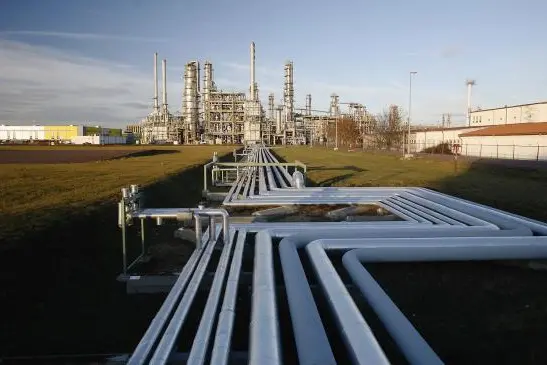PHOTO
- Asian shares rise on expected dovish Fed
- Oil prices drop on demand concerns
- Qatar’s index drops 1.1 percent
- Dollar remains flat, gold drops
Global markets
Asian shares rose early on Monday on expectations the Unites States’ Federal Reserve will show little or no further tightening this year in a meeting later this week.
Japan’s Nikkei led the way with a rise of 0.56 percent, and MSCI’s broadest index of Asia-Pacific shares outside Japan edged up 0.35 percent.
On Friday on Wall Street, the Dow Jones Industrial Average rose 139.07 points, or 0.54 percent, to 25,849.01. The S&P 500 gained 13.99 points, or 0.50 percent, to 2,822.47 and the Nasdaq Composite added 57.62 points, or 0.76 percent, to 7,688.53.
“Markets are pricing in little or no chance of a rate hike by the major central banks this year, outside of the Bank of England. The Fed is indicating that it will be patient and we don’t expect any rate hikes this year,” Alan Oster, group chief economist at National Australia Bank, told Reuters.
Oil prices
Oil prices dropped early on Monday on demand concerns fuelled by signs of a slowdown in the global economy.
U.S. manufacturing output fell for a second straight month in February, in a sign that the world’s biggest economy has been slowing down in the first quarter.
In Asia, Japan’s exports fell for a third straight month in February in a sign of growing strain from slowing global demand.
Brent crude oil futures were at $67.03 per barrel at 0231 GMT, down 13 cents, or 0.2 percent, from their last close, but not far off the $68.14 per barrel 2019-high reached last week.
U.S. West Texas Intermediate (WTI) futures were at $58.32 per barrel, down 20 cents, or 0.3 percent, from their last settlement, and also not far off their 2019-high of $58.95 from the previous week.
“The greatest downside risk to our oil price view is demand weakness on slower economic growth. Our base case is that global oil demand will increase by 1.3 million barrels per day (bpd) in 2019... A synchronised global slowdown in growth could push global demand growth to below 1 million bpd,” Bernstein Energy said on Monday, according to a Reuters report.
Middle East markets
Saudi Arabia’s index edged 0.2 percent lower on Sunday ahead of the market's inclusion in the FTSE Russell's emerging market index. Saudi Basic Industries fell 0.3 percent, and Saudi Telecom, dropped 0.8 percent.
Dubai’s index edged up 0.1 percent, boosted by shares of Emaar Properties which was up 0.4 percent. However Aramex was down 2.1 percent after Australia Post sold its 10 percent stake in the company.
Abu Dhabi’s index dropped 0.4 percent as market heavyweight First Abu Dhabi was down 1 percent.
Qatar’s index dropped 1.1 percent as Qatar Insurance was down 4.1 percent, while Barwa Real Estate dropped 1.9 percent.
Egypt’s blue-chip index EGX30 added 0.3 percent as Egypt Kuwait Holding rose 3.4 percent, while Heliopolis Co for Housing and Development rose 2.7 percent.
Kuwait’s premier market index edged 0.1 percent higher, Bahrain’s index was mainly flat and Oman’s index rose 0.3 percent.
Currencies
The dollar was mainly flat early on Monday.
The dollar index, which measures the greenback against a basket of six major currencies, stood at 96.564.
Precious metals
Gold prices dropped as investors turned to equities.
Spot gold was down about 0.2 percent at $1,299.15 per ounce by 0113 GMT.
U.S. gold futures fell 0.3 percent to $1,299.10 an ounce.
(Reporting by Gerard Aoun; Editing by Michael Fahy)
(gerard.aoun@refinitiv.com)
Our Standards: The Thomson Reuters Trust Principles
Disclaimer: This article is provided for informational purposes only. The content does not provide tax, legal or investment advice or opinion regarding the suitability, value or profitability of any particular security, portfolio or investment strategy. Read our full disclaimer policy here.
© ZAWYA 2019





















